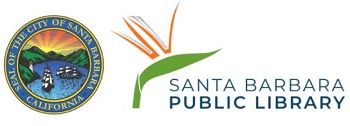Protestant Christianity
(eAudiobook)
Author
Published
Blackstone Publishing, 2006.
Format
eAudiobook
ISBN
9781982418588
Status
Available Online
Description
Loading Description...
Also in this Series
Checking series information...
More Details
Physical Description
2h 59m 0s
Language
English
Reviews from GoodReads
Loading GoodReads Reviews.
Citations
APA Citation, 7th Edition (style guide)
Dale Johnson., Dale Johnson|AUTHOR., & Sir Ben Kingsley|READER. (2006). Protestant Christianity . Blackstone Publishing.
Chicago / Turabian - Author Date Citation, 17th Edition (style guide)Dale Johnson, Dale Johnson|AUTHOR and Sir Ben Kingsley|READER. 2006. Protestant Christianity. Blackstone Publishing.
Chicago / Turabian - Humanities (Notes and Bibliography) Citation, 17th Edition (style guide)Dale Johnson, Dale Johnson|AUTHOR and Sir Ben Kingsley|READER. Protestant Christianity Blackstone Publishing, 2006.
MLA Citation, 9th Edition (style guide)Dale Johnson, Dale Johnson|AUTHOR, and Sir Ben Kingsley|READER. Protestant Christianity Blackstone Publishing, 2006.
Note! Citations contain only title, author, edition, publisher, and year published. Citations should be used as a guideline and should be double checked for accuracy. Citation formats are based on standards as of August 2021.
Staff View
Grouping Information
| Grouped Work ID | e2f3a1e9-b014-082b-6449-335d280cca25-eng |
|---|---|
| Full title | protestant christianity |
| Author | johnson dale |
| Grouping Category | book |
| Last Update | 2022-10-18 20:30:26PM |
| Last Indexed | 2024-04-20 05:32:36AM |
Book Cover Information
| Image Source | hoopla |
|---|---|
| First Loaded | Jun 12, 2022 |
| Last Used | Sep 26, 2023 |
Hoopla Extract Information
stdClass Object
(
[year] => 2006
[artist] => Dale Johnson
[fiction] =>
[coverImageUrl] => https://cover.hoopladigital.com/bsa_9781433238550_270.jpeg
[titleId] => 10027341
[isbn] => 9781982418588
[abridged] =>
[language] => ENGLISH
[profanity] =>
[title] => Protestant Christianity
[demo] =>
[segments] => Array
(
)
[duration] => 2h 59m 0s
[children] =>
[artists] => Array
(
[0] => stdClass Object
(
[name] => Dale Johnson
[relationship] => AUTHOR
)
[1] => stdClass Object
(
[name] => Sir Ben Kingsley
[relationship] => READER
)
)
[genres] => Array
(
[0] => Religious
)
[price] => 1.69
[id] => 10027341
[edited] =>
[kind] => AUDIOBOOK
[active] => 1
[upc] =>
[synopsis] => Protestant Christianity began in the early 16th century as a reform movement directed against Roman Catholic doctrines and practices. Early leaders such as Martin Luther, Ulrich Zwingli, and John Calvin laid out the movement's foundational principles, including the conviction that salvation is by god's grace alone, that the Bible is the sole authority of faith and practice, and that the church is a “priesthood of all believers.” Four distinct forms soon arose within Protestantism. Lutheranism would predominate in Germany, Scandinavia, and the Baltic countries. The Reformed churches included Presbyterians, Congregationalists, English-speaking Baptists, and a variety of ethnic Reformed churches in such countries as Switzerland, France, and the Netherlands. Among the radical extensions of the initial reforming movements were theocrats, spiritualists, anti-Trinitarians, and Anabaptists. And the Anglican church was established by England's Henry VIII in the wake of a dispute with the Catholic Church. The influential Puritan movement emerged around 1570 within the Anglican tradition. In the 17th century the Pietists objected to the increasingly doctrinaire character of contemporary Protestantism: they advocated a more intense and intimate relationship with God. In the 18th century, the Enlightenment invigorated interests in natural religion and in morality as the heart of religion; its objection to ceremonies, mystery and ecclesiastical authority formed much of the basis for modern liberal Protestantism. A Protestant evangelical revival (including Wesleyanism and the “great awakening”) emphasized religious conversion, personal and social effort, renewed attention to the authority of the Bible, and a conviction that the doctrine of the atonement stands at the center of the Christian message. In the 19th and 20th centuries, Protestant Christianity spread world-wide. Ecumenical efforts have brought many groups into close working relationships and produced unions of churches, though disagreements continue. The term Protestantism thus has become a broad umbrella for a variety of beliefs and institutions that retain some connection with the past as they express renewed forms of religious vitality in the present.
[url] => https://www.hoopladigital.com/title/10027341
[pa] =>
[publisher] => Blackstone Publishing
[purchaseModel] => INSTANT
)
